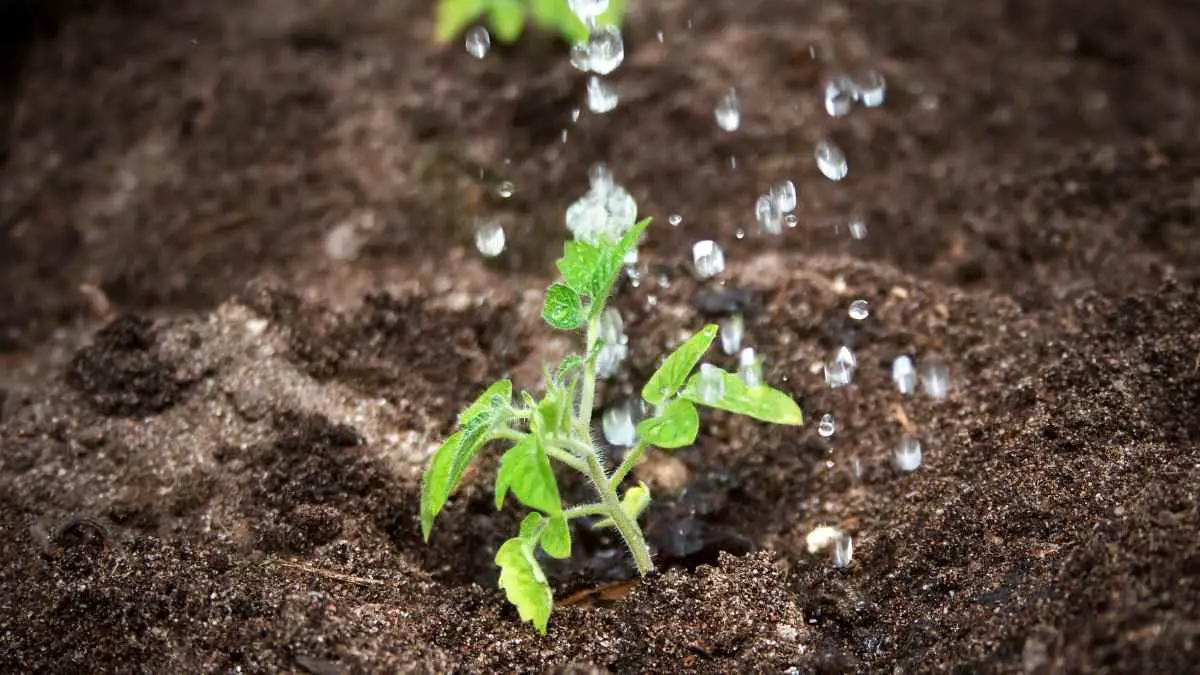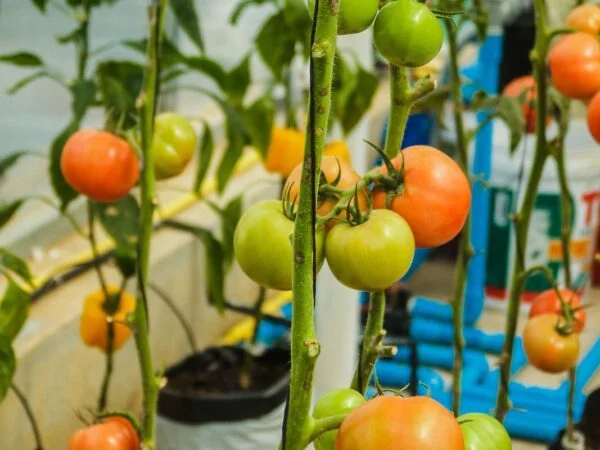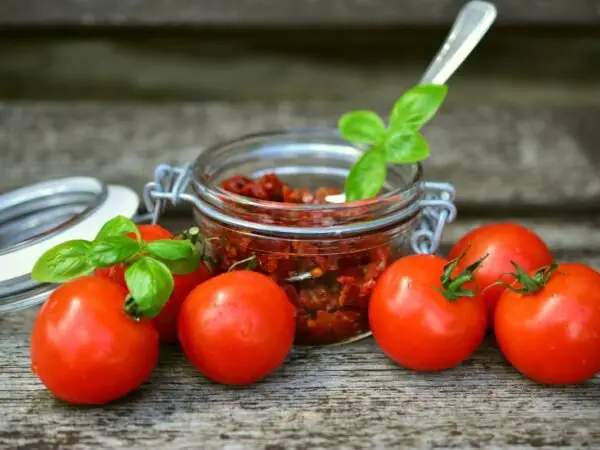Are your tomato seedlings falling over in the pot, leaving you puzzled about what's causing this issue? Whether it's due to inadequate support, overwatering, or lack of sunlight, we've got you covered with expert tips to ensure your tomato seedlings, tomatoes, grow strong and healthy with proper care and nutrients. Stay tuned to learn how to prevent your precious plants from taking a tumble!
Key Takeaways
- Understanding Legginess
- Recognize the signs of leggy tomato seedlings with elongated stems and sparse leaves.
- Causes of Falling Over
- Identify common reasons like insufficient light, high temperatures, or overcrowding that lead to seedlings falling over.
- Preventing Legginess
- Ensure adequate light, proper spacing, and appropriate temperatures to prevent legginess in tomato seedlings.
- Watering Techniques
- Use a consistent watering schedule and avoid overwatering to maintain healthy tomato seedlings.
- Support and Staking
- Provide support early on with stakes or cages to help tomato seedlings grow upright and strong.
- Recovery and Productivity
- Implement corrective measures promptly to help leggy seedlings recover and thrive, ultimately boosting productivity.
Understanding Legginess
Insufficient Light
Plant tomato seedlings should be placed close to shop lights, within an inch, for optimal growth. Using a fan can help reduce fungal issues caused by insufficient light exposure. Remember, the warmer the environment, the more light the seedlings require.
High Temperature
Maintain a close eye on room temperature to provide the best conditions for seedling growth. Note that higher temperatures may increase the light needs of the seedlings. Adjust lighting accordingly based on any temperature fluctuations.
Overcrowding Impact
To prevent seedlings from competing for essential resources, avoid overcrowding them. Adequately spacing out the seedlings will promote healthier growth overall. Planting multiple seeds ensures successful growth without causing overcrowding issues.
Soil Depth Importance
Proper soil depth is crucial for supporting robust root development in tomato seedlings. If you notice seedlings falling over, consider adjusting the soil depth to provide better stability. Regularly check and maintain appropriate soil depth to avoid instability issues with the seedlings.
Causes of Falling Over
Weak Seedlings
Identify weak seedlings early by observing stunted growth or pale coloration. Re-sow weak seedlings to improve chances of survival. Monitor closely for any signs of weakness, such as wilting leaves.
Watering Inadequacy
Water seedlings sufficiently to prevent dehydration and promote upright growth. Consider bottom watering to ensure roots receive adequate moisture. Using a fan can help prevent fungal issues caused by overwatering.
Pests Susceptibility
Implement pest control measures like introducing beneficial insects or using organic sprays. Regularly inspect seedlings for any signs of pest infestation, such as holes in leaves. Natural pest repellents like neem oil can also be effective.
Disease Risks
Be vigilant for signs of damping off, such as discolored stems or wilting seedlings. Proper watering techniques, like avoiding overhead watering, can reduce the risk of diseases spreading. Use fungicides preventatively to safeguard seedlings from common diseases.
Preventing Legginess
Adequate Lighting
To prevent tomato seedlings falling over, ensure they receive enough light for healthy growth. Adjust the duration of lighting based on their specific needs. Watch for signs of inadequate light, such as leggy stems.
Temperature Control
Maintain optimal temperatures to support the growth of tomato seedlings. Adjust temperature settings according to the requirements of the seedlings. Regularly monitor temperature fluctuations to prevent any negative impact on the plants.
Proper Spacing
When planting tomato seedlings, space them out appropriately to prevent overcrowding. Each seedling should have ample space to grow healthily without competing for resources. Consider the final size of the mature plants when spacing out the seedlings.
Soil Depth Adjustment
Check the soil depth where the tomato seedlings are planted to ensure they have a stable foundation. Adequate soil depth is essential for developing strong root systems. If the soil depth is insufficient, consider repotting the seedlings to provide them with more space for root growth.
Watering Techniques
Frequency Tips
Water seedlings regularly to promote healthy growth and development. Monitor soil moisture levels consistently to ensure the right balance for optimal growth. Adjust the watering frequency according to the specific needs of your seedlings.
Amount Guidelines
Provide the correct amount of water to nurture your tomato seedlings effectively. Avoid extremes like under or overwatering, as they can lead to stunted growth or root rot. Tailor the watering amounts based on the size of the seedlings and the moisture content in the soil.
Timing Best Practices
Water your tomato seedlings during the morning hours for better absorption and utilization of water. Take into account the time of day when adjusting lighting conditions for your seedlings' growth. Align your watering schedule with the natural growth patterns of your tomato seedlings.
Support and Staking
Burying Stem Method
When seedlings fall over, use the burying stem method to provide additional support. Bury the stem up to the cotyledons, ensuring stability. Watch closely for signs of recovery.
Using Supports
Prop up fallen seedlings with bamboo skewers to offer immediate support. Consider employing stakes or other supports to prevent further collapse. Implementing support systems can significantly aid weak seedlings.
Pruning Strategies
Pruning Benefits
Pruning enhances seedling health by promoting stronger growth and preventing legginess. Encourage bushier development through proper pruning techniques. Consider enhancing seedling development with strategic pruning.
Pruning Techniques
Properly prune tomato seedlings to encourage bushier growth and prevent legginess. Use sterilized tools during pruning to prevent disease transmission. Maintain healthy and robust tomato plants through effective pruning methods.
Transplanting Tips
Handling Leggy Seedlings
Leggy seedlings should be addressed promptly to prevent further growth issues. Move them closer to light sources for better support. Prune leggy seedlings to encourage healthier growth patterns.
Transplanting Care
When transplanting seedlings, provide proper care to ensure successful transition. Acclimate seedlings to new environments post-transplantation. Monitor for stress signs closely after transplanting.
Recovery and Productivity
Survival Chances
Assess the survival chances of fallen tomato seedlings realistically. Monitor closely for any signs of recovery, such as new growth or improved stability. If the chances are low, consider resowing to ensure a healthy crop development.
Keep a close eye on the fallen seedlings to detect any improvements in their condition. Look for healthy leaves, strong stems, and steady growth as positive indicators. Prompt action can make a significant difference in their recovery process.
Boosting Fruit Production
Implement strategies to enhance fruit production in tomato plants effectively. Pruning techniques can help in boosting fruit-bearing capacity by directing nutrients towards developing fruits. Regularly prune unnecessary branches to focus plant energy on fruit development.
Frequent monitoring of plant health is crucial to maximize the potential for increased fruit production. Ensure adequate sunlight exposure, proper watering, and nutrient-rich soil to support healthy growth and abundant fruit yield. By maintaining optimal growing conditions, you can enhance the productivity of your tomato plants.
Summary
In understanding legginess and the causes of falling over, you've gained insights into nurturing healthy tomato seedlings. By implementing watering techniques, support and staking methods, pruning strategies, and transplanting tips, you're well-equipped to prevent legginess and promote robust growth. Remember, recovery and productivity are achievable through these practices.
Take action now by applying these strategies to your tomato seedlings. Support them as they grow to ensure they thrive and produce a bountiful harvest. Your efforts will not only prevent legginess but also lead to healthier plants and a more successful gardening experience.
Frequently Asked Questions
What is Legginess in Tomato Seedlings?
Legginess in tomato seedlings refers to the condition where the plants grow tall and spindly with weak stems. This happens due to insufficient light, causing the seedlings to stretch in search of light.
How Can I Prevent Legginess in Tomato Seedlings?
To prevent legginess in tomato seedlings, ensure they receive adequate sunlight or artificial light for 14-16 hours a day. Maintain proper spacing between seedlings, use a fan for air circulation, and avoid over-fertilizing.
Why Are My Tomato Seedlings Falling Over?
Tomato seedlings may fall over due to various reasons such as inadequate support, overcrowding, weak stems from legginess, or improper watering leading to root issues. Addressing these factors can help prevent your seedlings from falling over.
What Watering Techniques are Best for Tomato Seedlings?
Water tomato seedlings at the base early in the day using room temperature water. Avoid overhead watering to prevent fungal diseases. Ensure the soil is consistently moist but not waterlogged by checking the top inch of soil regularly.
When Should I Prune Tomato Seedlings?
Prune tomato seedlings when they have developed their first set of true leaves by removing the lower leaves up to that point. This encourages stronger stem growth and better air circulation around the plant, reducing the risk of disease.
Image Source: Paid image from CANVA





